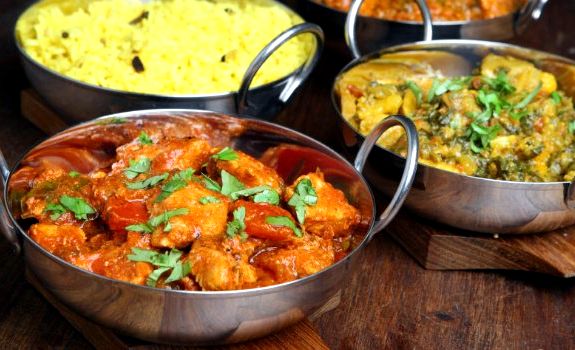
by Jesse RENEE Last Updated: May 27, 2015
Jesse Renee started covering health insurance and diet after getting a Bs in dietetics, food and diet in the College of California, Berkeley. She continued to earn her Master of Science in diet in the College of Chicago. Renee has labored like a diet specialist and dietitian since 2000, concentrating on metabolic and hormonal balancing.
Many staple foods from the Indian diet are high glycemic, and like other Americans, Indian Americans are vulnerable to diabetes type 2. Actually, Asian Indians within the U . s . States are in a greater chance of diabetes type 2 than Caucasians, based on the American Association of Physicians of Indian Origin. Carrying out a low-glycemic diet helps take control of your bloodstream sugar for those who have diabetes and reduces your chance of setting it up without having it. The index list is really a way of measuring how quickly a carb food increases your bloodstream sugar. Low-glycemic foods possess a GI of 55 or below.
Beans and Legumes
Pulses are wealthy in fiber along with a staple in Indian cuisine. Chickpeas, kidney beans, mung beans, lentils and black-eyed peas are particularly common in Indian dishes. The index list of those legumes is between 29 and 33, which makes them the ideal choice. Continue enjoying traditional dishes for example chana masala -- a chickpea dish -- and red kidney bean curry. Diets wealthy in fiber prevent diabetes type 2. Legumes are wealthy in dietary fiber, a kind of fiber that dissolves in water and slows the absorption of sugar helping lower cholesterol levels.
You Could Also Like
The Index List of Applesauce
The Index List for Raspberries
The Index List of Bananas
What's the Index List of Basmati Grain?
Index List of Peanuts
Index List Avocados
Low Calorie Sweeteners around the Index List
Index List of Wheat Berries
The Index List of Refried Beans
Low GI Breakfast Ideas
Quinoa the Index List
Stevia the Index List
The Index List Table of Fruits Vegetables
The Very Best Breads for any Low Glycemic Diet
Planning Glycemic Load Menu
Low Glycemic High Protein Diet Foods
Cereal Grains
Grains are many of Indian cuisine, from flatbreads like naan to grain like a side dish. Traditional Indian meals contain refined versions of those grains, that are high glycemic. To reduce the GI of the diet, it's not necessary to give these food types up. Rather use whole grain products to create your dishes. For instance, rather of white-colored naan bread, select whole-wheat roti, or chapati, that are lower-glycemic flatbreads. Make homemade naan using cracked wheat. Skip the simple-prepare basmati grain and go for slow-cooked or brown basmati grain.
Staple Vegetables
The Indian diet includes a multitude of low GI vegetables, together with root veggies, that are high glycemic. Staples like leafy vegetables, eggplant, eco-friendly beans, cauliflower, summer time squash, zucchini, artichoke, bean sprouts, cucumber and gourd are great low-glycemic options. But root vegetables like beets, rutabaga and taters are high GI. Whenever your dishes demand root vegetables, choose low-glycemic options for example carrots, parsnips and yams, that have a GI of 35 to 54.
Staple Fruits
Fruit is another big a part of a conventional Indian diet, and most of the staples are low GI. Common fruits in Indian dishes include papaya, apricots, grapefruit, mango, kiwi, peaches and pears, which have the ability to a GI level below 60 when prepared fresh. Fruit canned in juices includes a considerably greater index list. Other staple fruits for example cantaloupe and pineapple possess a moderate index list of 65 and 66 correspondingly. Whilst not technically low glycemic, smaller sized servings of these fruits can fit them to your diet.
Related Searches
Subscribe To OUR E-newsletter
Obtain the latest tips about diet, excercise and a healthier lifestyle